Research areas
<p> Research areas</p>
The focus of IGC is Vine and Wine of the Champagne region




Research for biobased sustainability innovations for the sector Champagne - ANAXAGORE programme
Competitiveness Cluster Industries & Agroresources (pôle IAR); Comité Champagne ; cooperation with ID Champagne. Support from Région Champagne-Ardenne


Lignocellulose biodegradation and bioconversion

Ethnography of wine growers associations
Villa BISSINGER- International Institute for Champagne wines

Biological control of vine disease. Factors influencing wine quality (microbial-vine interaction, biological control and climate change, biological control and wine quality)
Research unit on vine and wines from Champagne (URVVC, EA 4707)


Effervescence, Champagne and applications. Physicochemical process of wine effervescence and foam
Molecular and atmospheric Spectrometry Group, (GSMA, CNRS-UMR 7331)

Pedology: wine-growing soils of the Champagne region
Geochemistry: trace metal behaviour in soils and sediments
Hydrology: water and pollutant transfer from runoff and infiltration

Application of fluid mechanics to effervescence: the study of mixing flow phenomena induced by bubble columns in champagne glasses - visualisation of CO2 flow patterns intrinsic to fluid motion.
Vibratory mechanics: optimizing the riddling process of bottles on vibration benches; spatial-temporal shifts in sediment
Research Group in Engineer's Sciences, (GRESPI, EA 46 94)
Molecular aspects of vini-viticulture: dispersion of phytosanitary products in soils and aquifers. New biodegradable materials in vine growing; custom-made natural vine defence elicitors; the study of wine constituents using metabolomics. Use of cellulose gum for tartaric precipitation prevention. Analysis of the surface-active macromolecules responsible for stabilizing Champagne foam. Analysis of the oxidation of compounds in aging wines using NMR. Isolation and purification of bioactive compounds in vine and wine. Manufacturing derivatives of tartaric acid synthons
Institute of molecular Chemistry, (ICMR, UMR-CNRS 7312)

Economics, institutional and identity dynamics of the wine industry. Stake holder interplay in the economics and management of cultural goods, and the construction of cultural heritage. Promoting wine heritage through wine tourism. Wine, gastronomy, "biens du goût", luxury industry, marketing and the cultural behaviour of consumers. Short marketing circuits. The dynamics of innovation. The rationale of sustainable development. Marketing and brand management, distribution, social media
Reims Economic Sciences Laboratory (REGARDS, EA 62 92)
Scientific considerations in the Champagne region's long history of winemaking. Vine and Wine in Antiquity. Vine and wines in the Middle Ages. History of landscape and the environment. Situating Champagne wine within the history of society
Studies and Research Centre in cultural History (CERHIC, EA 2616)
Transformation towards sustainability. Territorial dynamics around land use changes: winegrowing versus residential development. Disturbances and conflict in coexisting landuses in the transformation towards sustainability
Institut d'Aménagement des Territoires, d'Environnement et d'Urbanisme de Reims (IATEUR, EA 2076)
Wine sector regulation. Protection of registered designation of origin (AOC) wine. Public health and alcohol consumption. Wine trade. Promotion of winegrowing territories. Terroir, wine and culture
Research Centre on Territorial Decentralisation (CRDT)
Restructuration of jobs, professional activities, trades and professions. Professionalization and social and organizational transformation: issues of professional identity, career paths and professional rhetoric
Studies and Research Centre on jobs and professionalization (CEREP, EA 4692)
Social representations, language (lexicon for describing odours and wine); neurocognitive effects of alcohol
Cognitive Psychology Laboratory, Health Socialization (C2S, EA 62 91)

Technology platforms
Flow cytometry (analysis and cell sorting):
- Microbiologic monitoring of wines (eg. identification of Brettanomyces yeasts in the alcoholic fermentation of wine, beer and cider); methodological development
- Study of the effects of grape vine and wine components on proliferation and apoptosis in tumour cell lines (eg. Resveratrol)
- Ploidy and cell cycle analysis of the grapevine for plant selection and parasite control
